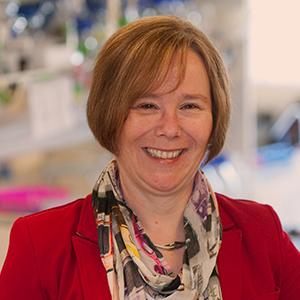
Sheena E Radford
Sheena Radford obtained a BSc in Biochemistry at Birmingham University and PhD at Cambridge University. She was a postdoctoral fellow at the University of Oxford, where her interest in protein folding began. She moved to the University of Leeds in 1995, where her independent academic career began, and was a founding member of the Astbury Centre for Structural Molecular Biology. She is currently the Astbury Professor of Biophysics and Royal Society Research Professor in Leeds. She has received several awards and honours, including Fellowship of the Royal Society, Academy of Medical Sciences, Royal Society of Chemistry; Membership of the Academia Europaea and EMBO; and in 2020 being made Officer of the Most Excellent Order of the British Empire.
Sheena currently leads an interdisciplinary research team of ~ 20 PhD students and postdocs who work on different aspects of protein folding and misfolding, including assembly of bacterial outer membrane proteins to build the cell wall, and protein misfolding in amyloidosis. She has published >340 papers on these topics which have received >24,000 citations (h index of 84). She has given >445 invited lectures in 23 countries, and is most proud of the achievements of the >150 PhD students and postdocs she has worked with over the last 27 years.
Sheena’s interdisciplinary research group employs a range of structural and biophysical methods combining chemical biology, cell biology and other approaches to explore the fundamental mechanisms by which proteins fold or misfold, and assemble into amyloid fibrils. Their work focusses on the naturally amyloidogenic proteins b2-microglobulin, islet-associated polypeptide and a-synuclein, which are involved in systemic amyloidosis, type II diabetes and Parkinson’s disease, respectively. The group aims to find the Achilles heel in the aggregation mechanisms of these proteins and to use this understanding to develop new routes to control aggregation for human benefit.